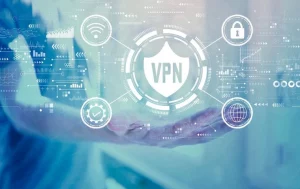In today’s rapidly evolving digital landscape, the demand for skilled professionals in cybersecurity and project management has never been higher. As organisations strive to secure their sensitive information and execute projects efficiently, individuals equipped with the right knowledge and certifications are invaluable assets. This comprehensive guide explores the diverse array of courses available for those seeking certification in both courses for cyber security and project management.

I. The Importance of Cybersecurity and Project Management Certifications:
Cybersecurity Certifications:
The increasing frequency and sophistication of cyber threats have made cybersecurity a critical aspect of modern business operations. Certifications such as Certified Information Systems Security Professional (CISSP), Certified Ethical Hacker (CEH), and CompTIA Security+ are widely recognized in the industry. These certifications validate expertise in areas like network security, penetration testing, and risk management.
Project Management Certifications:
Project management is essential for organisations to deliver successful outcomes on time and within budget. Project Management Certificate Programs, PRINCE2, and Certified ScrumMaster (CSM) are highly respected. They cover various methodologies, tools, and best practices for effective project planning, execution, and monitoring.
II. Cybersecurity Certification Programs:
CISSP (Certified Information Systems Security Professional):
CISSP is a globally recognized certification that focuses on various aspects of cybersecurity, including security and risk management, asset security, and software development security. This certification is ideal for professionals with several years of experience in the field.
CEH (Certified Ethical Hacker):
CEH is tailored for individuals interested in ethical hacking and penetration testing. It equips professionals with the skills needed to identify and address vulnerabilities in systems, making it an essential certification for cybersecurity experts.
CompTIA Security+:
CompTIA Security+ is an entry-level certification that covers fundamental cybersecurity concepts. It is suitable for beginners and provides a solid foundation in areas such as network security, cryptography, and security assessments.
CISM (Certified Information Security Manager):
CISM is designed for individuals involved in managing, designing, and assessing an enterprise’s information security. This certification is ideal for those aspiring to take on leadership roles in cybersecurity.
CCNA Cyber Ops (Cisco Certified CyberOps Associate):
Cisco’s CCNA Cyber Ops certification focuses on the operational aspects of cybersecurity, preparing professionals to analyse and respond to security incidents. It is particularly valuable for those working in network security operations roles.
III. Project Management Certification Programs:
PMP (Project Management Professional):
PMP is one of the most prestigious certifications for project managers. It covers the entire project life cycle, from initiation to closure, and emphasises the importance of effective communication, risk management, and stakeholder engagement.
PRINCE2 (PRojects IN Controlled Environments):
PRINCE2 is a widely used project management methodology that provides a structured framework for project planning, execution, and monitoring. It is especially popular in industries like IT and construction.
Certified ScrumMaster (CSM):
Scrum is an agile framework widely adopted in software development. The CSM certification equips individuals with the knowledge to effectively facilitate Scrum teams, fostering collaboration and iterative development.
CAPM (Certified Associate in Project Management):
CAPM is an entry-level certification offered by the Project Management Institute (PMI). It is suitable for individuals with limited project management experience, providing a foundational understanding of project management principles.
PMI-ACP (PMI Agile Certified Practitioner):
As agile methodologies gain popularity, the PMI-ACP certification becomes increasingly valuable. It validates a professional’s proficiency in agile practices and principles, making it relevant across various industries.
IV. Dual Certification Programs:
CompTIA Project+ and CompTIA Security+:
This dual certification program combines project management and cybersecurity skills. It is suitable for individuals who want a comprehensive understanding of managing projects with a focus on security considerations.
CyberSec First Responder (CFR) and Project Management:
This unique combination prepares professionals to handle cybersecurity incidents and manage projects simultaneously. It is particularly beneficial for those working in roles that require a multidisciplinary skill set.
V. Choosing the Right Certification Path:
Assessing Career Goals:
Before selecting a certification, individuals should evaluate their career goals. If the aim is to specialize in cybersecurity, certifications like CISSP or CEH may be more appropriate. For those aspiring to lead projects, PMP or PRINCE2 might be the better choice.
Evaluating Skill Level:
Certifications vary in complexity, with some designed for beginners and others for seasoned professionals. It’s crucial to choose a certification that aligns with one’s current skill level to ensure a meaningful and manageable learning experience.
Industry Relevance:
Different industries place emphasis on specific certifications. Researching the certifications valued in the desired industry can help individuals make informed decisions about which credentials to pursue.
Continuous Learning:
The cybersecurity and project management fields are dynamic, with new technologies and methodologies emerging regularly. Individuals should prioritise certifications that encourage or require ongoing professional development to stay current in their respective fields.
VI. The Future of Cybersecurity and Project Management:
Emerging Trends:
The future of cybersecurity involves addressing challenges such as artificial intelligence-driven attacks and the increasing interconnectivity of devices. Certifications that incorporate these emerging trends will be highly sought after.
Project Management in the Digital Age:
As organisations embrace digital transformation, project managers will need to adapt to new tools and methodologies. Certifications that incorporate aspects of digital project management and agile practices will be essential.
Conclusion:
In conclusion, the realm of cybersecurity and project management offers a multitude of certification options to suit diverse career paths and aspirations. Whether individuals are seeking to specialise in ethical hacking, lead project teams, or integrate both skill sets, there are certification programs available to meet their needs. The key lies in strategic decision-making, aligning certifications with career goals, and embracing a mindset of continuous learning to stay relevant in these dynamic fields.


